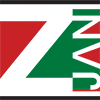One of the exciting outcomes from Fledge is the discovery of a new, better business model that an entrepreneur never gave a second thought. For Fledge9, this extra exciting, as the Biogen Kenya applied four times with a business making biodiesel, and we fully expected them to leave the program with that business.
 Five weeks later, we have a new name, Zijani, a new logo, but more importantly, a new business model and business plan.
Five weeks later, we have a new name, Zijani, a new logo, but more importantly, a new business model and business plan.
This came about in the normal course of questioning assumptions and digging into the details. Biogen Kenya started with an interested business model, manufacturing biodiesel as a service for hotels and restaurants, collecting their used cooking oil and converting it to biodiesel, paid for per liter as a service.
When asking what restaurants do with the oil when they don’t pay for this service we learned that the most common “solution” is to simply pour it down the drain, and that doing that was causing flooding in the city, as cooking oil clogs sewer pipes. Last year Nairobi passed new laws making it illegal to dump oil down the drain, and thus created a regulatory opportunity for someone to collect all that oil.
A bit of research later, and we discovered there is a global market for used cooking oil, which means we should be able to monetize any and all oil we can collect. Given we could convert any oil into biodiesel, worst case is we have more biodiesel than we can immediately sell, but that too is exportable.
After a few weeks fleshing out the business plan, and it all seems to “pencil out”. Thus is born Zijani from the seeds of Biogen Kenya. Zijani first and foremost collects used cooking oil from Nairobi restaurants, turning that trash into cash by feeding the global biodiesel supply chain, and eventually producing its own biodiesel for resale in Kenya.
A nice, simple business that needs little more than a truck, a pump, and a lot of containers to hold all the oil. And one more example of why Fledge works.
For the rest of the story, come hear Zijani tell its story at Demo Day.




